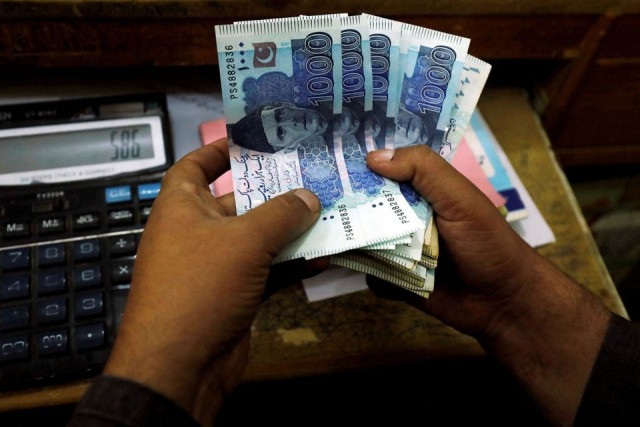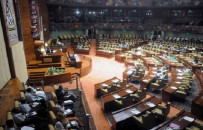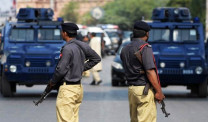Financial turmoil fails to hinder Sindh’s spending
Allowances amounting to billions of rupees are given annually on top of base salaries

There has been great chatter amongst economists in the country that Pakistan is slowly edging towards defaulting on its debt but a look into the allowances granted to government employees by the Sindh government, in the budget for this fiscal year, paints a wholly different picture.
Despite the country’s mammoth debt of Rs62.5 trillion, it does not seem that the federal or provincial governments are interested in cutting down on spending. For instance, in Sindh several departments continue to grant additional benefits to their employees on top of their base salaries.
As per the province’s budget documents, in first place is the provincial education department, which gives various allowances to the teachers who work for it. In the primary education department, over Rs706 million is disbursed as a teaching allowance and Rs3 million as a science teaching allowance. Similarly, the middle education department spends about Rs8 billion, secondary education department spends more than Rs21 billion, and higher education department spends more than Rs9 billion on various allowances, including teaching and science teaching allowances. Furthermore, the college education department disburses more than Rs10 billion allowances, including teaching and science teaching.
Whereas, the technical education department spends Rs1.64 billion on various allowances. An official of the education department, talking about the benefits on the condition of anonymity, informed that the science teaching allowance has been given for a few decades now, ever since there was shortage of science teachers. “The purpose of this allowance was to encourage science teaching. Whereas the ordinary teaching allowance is being given under the pressure of teachers’ organisations,” said the official. In second place for giving additional benefits is the province’s health department.
The total budget of the health department is Rs196 billion, of which Rs80 billion goes towards employees’ salaries and allowances - more than 40%. The budget documents reveal that more than 60 types of allowances are given to employees of the health department and Rs53 billion is spent on such benefits. The Rs53 billion figure includes a risk allowance of Rs16.75 billion which was recently abolished by the Sindh government, prompting protests by the department’s employees. It is pertinent to mention that just like the teaching allowance given to teachers, Rs6.30 billion is disbursed as a health professional allowance and over Rs1.18 billion is provided as a special healthcare allowance. Furthermore, Rs45 million is given as a nursing professional allowance. Apart from this, a further Rs182 million is also disbursed as a non-practicing allowance.
Aftab Memon, a retired Sindh government official, commenting on the nature of benefits, said that the non-practising allowance is for those doctors who do not practise privately during the evenings. “Such allowances are common in the law department as well and are given to the Advocate General, prosecutors, and other employees who do not practise privately,” Memon explained. Leader of the Health Department Employees Association, Ejaz Clary, when asked about the exorbitant allowances apart from the non-practicing benefits, shrugged it off as a non-issue.
“The health department employees in Punjab get more allowances than in Sindh. Some of the allowances granted in the province of Punjab are not even given to the employees of Sindh,” Clary remarked. Benefits galore After the education and health Department, the provincial police department is in third place for additional benefits. As per the budget documents, more than Rs52 billion of the department’s funds go towards allowances - out of this Rs5.51 billion is given as a risk allowance and Rs7 billion is spent on fixed daily allowance. Similarly, Sindh’s Department of Services, General Administration and Coordination, spends at least Rs4 billion annually on the account of various allowances. The provincial finance department spends Rs1.79 billion, the provincial planning and development department spends over Rs800 million, and the Chief Minister’s secretariat has allocated over Rs700 million just for employee allowances.
Furthermore, an additional allowance has also been introduced in the new financial year for the employees of the General Administration Department and Chief Minister Sindh Secretariat - an executive allowance, for which the former has allocated Rs120 million and the latter has allocated Rs20 million.
Published in The Express Tribune, November 24th, 2022.



















COMMENTS
Comments are moderated and generally will be posted if they are on-topic and not abusive.
For more information, please see our Comments FAQ